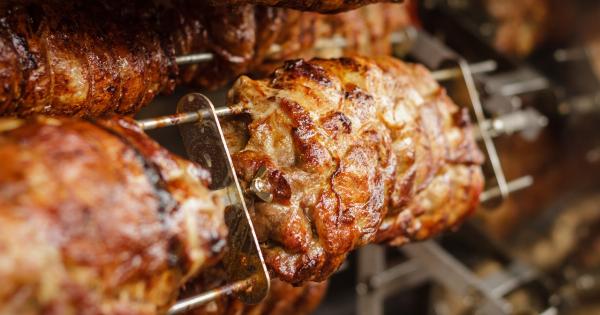Food is an essential part of our lives. We need it to nourish our bodies and stay healthy. However, our relationship with food can sometimes become unhealthy.
It’s important to be aware of the signs and symptoms of an unhealthy relationship with food, as it can have a negative impact on both our physical and mental well-being. In this article, we will explore some common signs that indicate you may have an unhealthy relationship with food, as well as provide tips on how to improve your relationship with food.
1. Obsessive Thoughts about Food
If your thoughts about food consume a significant amount of your time and energy, it may be a sign of an unhealthy relationship with food.
Constantly thinking about what you should eat, what you shouldn’t eat, or feeling guilty about eating certain foods can be exhausting and take away from the joy and satisfaction of eating.
2. Emotional Eating
Using food as a way to cope with emotions rather than for nourishment can indicate an unhealthy relationship with food. Turning to food whenever you’re stressed, sad, or bored can lead to a cycle of emotional eating that can be difficult to break.
Emotional eating often results in overeating and can lead to weight gain and feelings of guilt and shame.
3. Restrictive Dieting
If you are constantly following restrictive diets or severely limiting your calorie intake, it may be a sign of an unhealthy relationship with food.
Restrictive dieting can lead to nutrient deficiencies, low energy levels, and an unhealthy preoccupation with food. It can also trigger binge eating and a cycle of restriction and overindulgence.
4. Feeling Guilty or Ashamed After Eating
Feeling guilty or ashamed after eating certain foods can be a red flag for an unhealthy relationship with food.
Labeling foods as “good” or “bad” and attaching moral value to the act of eating can lead to a negative relationship with food. Instead of enjoying meals and celebrating the nourishment it provides, you may constantly feel guilty for indulging in your favorite treats.
5. Lack of Satisfaction with Food
If you find that you are never truly satisfied after a meal or constantly feel the need to eat more, it may indicate an unhealthy relationship with food.
This lack of satisfaction can stem from various factors, such as emotional eating, a restrictive diet, or eating too quickly without giving your body a chance to register fullness.
6. Using Food as a Reward or Punishment
Using food as a reward or punishment can indicate an unhealthy relationship with food. Associating food with emotions and using it as a way to celebrate or punish yourself can lead to an unhealthy cycle of restriction and guilt.
Instead of using food as a reward or punishment, it’s important to view it as a source of nourishment and enjoyment.
7. Constant Comparison and Body Dissatisfaction
If you constantly compare your body to others and feel dissatisfied with your appearance, it can contribute to an unhealthy relationship with food. This dissatisfaction can lead to restrictive dieting, obsessive exercise, and a negative body image.
It’s important to focus on self-acceptance and practicing self-care rather than striving for an unrealistic and unhealthy body ideal.
8. Avoiding Social Situations Involving Food
Avoiding social situations that involve food, such as parties or dinner gatherings, can be a sign of an unhealthy relationship with food.
If you find yourself isolating or feeling anxious in these situations, it may indicate a fear or discomfort around food or being judged for your choices. Building a healthy relationship with food involves being able to enjoy meals in social settings without stress or guilt.
9. Using Exercise as Punishment for Eating
If you feel the need to engage in intense exercise or compensate for eating by overexercising, it may indicate an unhealthy relationship with food.
Exercise should be seen as a way to support overall well-being, not as a means to “burn off” or punish yourself for indulging in food. Engaging in balanced and enjoyable physical activity is key to a healthy relationship with food and your body.
10. Seeking Professional Help
If you resonate with many of the signs mentioned above and feel overwhelmed by your relationship with food, it may be beneficial to seek professional help.
Registered dietitians, therapists, or counselors specializing in disordered eating can provide guidance and support in developing a healthier relationship with food and your body.
In conclusion, having a healthy relationship with food is essential for our overall well-being. If you notice any of the signs mentioned above, it’s important to take steps to improve your relationship with food.
Remember, food should be enjoyed, nourishing, and a source of pleasure rather than guilt or anxiety.
























